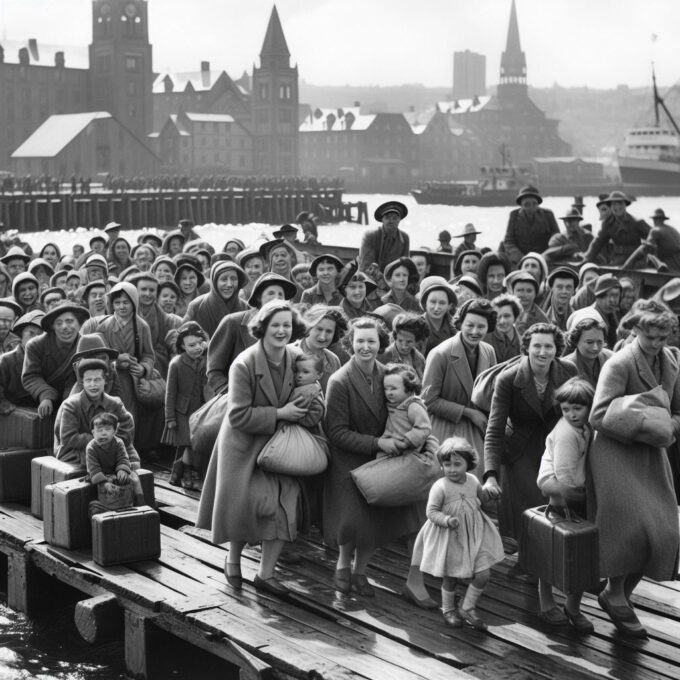Findmypast is using RootsTech to profile a new cooperative project “Bringing to light British Home Children’s stories.” Read the release here.
The sub-head is “Between the 1860s and 1970s, over 130,000 children were sent to live in overseas dominions by the British government. Known as British Home Children, many of their stories have been lost to history.”
Where does the number 130,000 come from? Does it include those past school leaving age who should be termed juveniles, NOT children?
What is the basis for the claim that “Around four million people around the world are descended from a British Home Child?”
What is the basis for claiming the British government sent them?
Many were termed orphaned at the time as they had lost one parent. Losing both parents, which we think of as orphaned today, was not the definition at the time. Many youngsters found themselves unwanted when the surviving parent remarried. Many others where abused and neglected and found refuge with the organizations that subsequently arranged their move and settlement in Canada and elsewhere.
Those who call for an apology from the Government of Canada for its involvement should reflect of the young immigrants fate if they had not been helped and emigrated. My own grandfather lost both parents by the time he was age 10, and after leaving the London orphanage at age 14 is found as a coal miner (hewer) in South Wales where those as young as 14 are recorded doing the same work in the 1911 census. Would he have been better off on a Canadian farm? There’s no guarantee. Aside from death and taxes, very little is guaranteed in this life.
Perhaps the descendants, instead of seeking an apology, should acknowledge the circumstances at the time and thank the Canadian government for having provided a refuge, just as many of today’s refugees do.


 Add your DNA result to MyHeritage for FREE
Add your DNA result to MyHeritage for FREE
 New members can get 50% off a Legacy Family Tree Webinar membership through Saturday ( February 29 – March 2, 2024).
New members can get 50% off a Legacy Family Tree Webinar membership through Saturday ( February 29 – March 2, 2024). The brides of Second World War Canadian servicemen
The brides of Second World War Canadian servicemen 
 RootsTech offers 16 sessions classified as intermediate/
RootsTech offers 16 sessions classified as intermediate/